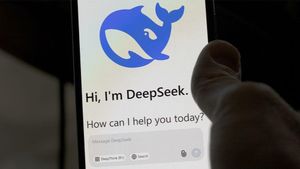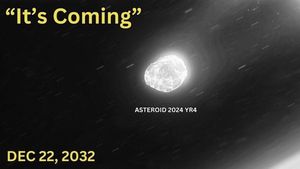The COVID-19 pandemic, which has claimed millions of lives across the globe, continues to spark heated debates over its origins. Recently, the Central Intelligence Agency (CIA) offered a provocative new assessment indicating the coronavirus is "more likely" to have leaked from a laboratory in Wuhan, China, rather than originating from animals, though officials cautioned this conclusion carries "low confidence". This statement marks one of the significant announcements from newly appointed CIA Director John Ratcliffe, who has long promoted the lab leak theory.
On January 31, 2025, during a White House press briefing, Press Secretary Karoline Leavitt reiterated the assessment pointing fingers at laboratory origins. She stated, "Many members in this very room mocked him for [President Trump’s] criticism of China’s openness concerning COVID origins, saying he was spewing conspiracy theories. He was not. We now know this to be the confirmable truth." Leavitt pointedly criticized the Biden administration for not making this information transparent sooner, highlighting the resurgence of the lab leak hypothesis.
Ratcliffe's assertion builds upon growing sentiment within U.S. intelligence circles. Traditionally, the idea of the coronavirus escaping from the Wuhan Institute of Virology has faced intense scrutiny from scientists who argue it lacks conclusive evidence. Critics, including many virologists, have consistently argued for the natural origin theory, which posits the virus spread from animals at the Huanan wet market, not through human error at the lab, which is located just 40 minutes away.
Ratcliffe's public stance is particularly noteworthy considering the long history of the intelligence community's investigations, some of which have reportedly dated back to the early days of the pandemic when discussions on origins began. Leavitt’s comments echo sentiments shared by other political leaders and have reignited debates about transparency, credibility, and the integrity of Chinese authorities.
According to reports, the CIA's review of the virus's origins, which has been termed as carrying "low confidence," was completed before transitioning presidents, yet emerged prominently during Ratcliffe's leadership. A spokesperson for the agency indicated the assessment stems from "the available body of reporting" supporting the idea of research-related origins over natural origins.
Despite the CIA's assertions, the scientific community remains polarizing on these revelations. Following Ratcliffe's remarks, many experts called for more thorough investigations and scientific inquiries. Notably, Shi Zhengli, the head scientist at the Wuhan Institute of Virology, has faced numerous allegations relating to the lab leak theory and has persistently denied any involvement or connection of the outbreak to her research facility.
Fast forward to the current discourse among U.S. lawmakers, the spotlight continues to shine on the question of accountability. Press Secretary Leavitt emphasized, "John Ratcliffe revealed the truth, which has now triggered diplomatic tension with China and has redefined several narratives around this unprecedented health crisis." The Trump administration was early to question the lab origins, drawing widespread derision from many corners then. Now, the dynamics have dramatically shifted, as many are taking another look at the possible repercussions stemming from both the pandemic itself and its origin.
FBI Director Christopher Wray has also publicly weighed in on the discussion, stating, "the origins of the pandemic are most likely a potential lab incident," reinforcing the sentiments shared by directors across intelligence agencies. This official narrative contestation has raised immense scrutiny upon China and its response to the global pandemic at large.
The importance of this discussion not only lies within its immediate political ramifications but also creates broader discourse over international relations and scientific integrity. Observers argue this skepticism could hinder international cooperation on public health matters and complicate future pandemic preparedness efforts.
Notably, some experts view the persistence of the lab leak theory’s prevalence against the backdrop of systemic distrust toward the Chinese government. The conversation surrounding origins continues to manifest as both scientific inquiry and political maneuvering, generating increasing pressure on the U.S. administration to provide transparent answers.
Concerns remain whether the U.S. public and international community will receive full clarity around the pandemic's origins, especially as conversations sharpens on Beijing's accountability. The CIA director's remarks combine the dual narrative of national security with public health, calling for scrutiny on both fronts.
Despite numerous investigations and inquiries over the years, the verdict surrounding the origins of COVID-19 remains as elusive as ever. The continued discourse also bespeaks the lengths to which some forces are willing to go for transparency and holds the potential for significant and lasting impacts on U.S.-China relations.
Therefore, as the saga over COVID-19’s origins unspools, many remain curious and concerned over how this will affect international relations moving forward. The identification of COVID's origins will likely remain pivotal as humanity seeks to prevent future pandemics. Without clarity, mistrust and speculation will likely prevail, creating hurdles for global cooperation.



